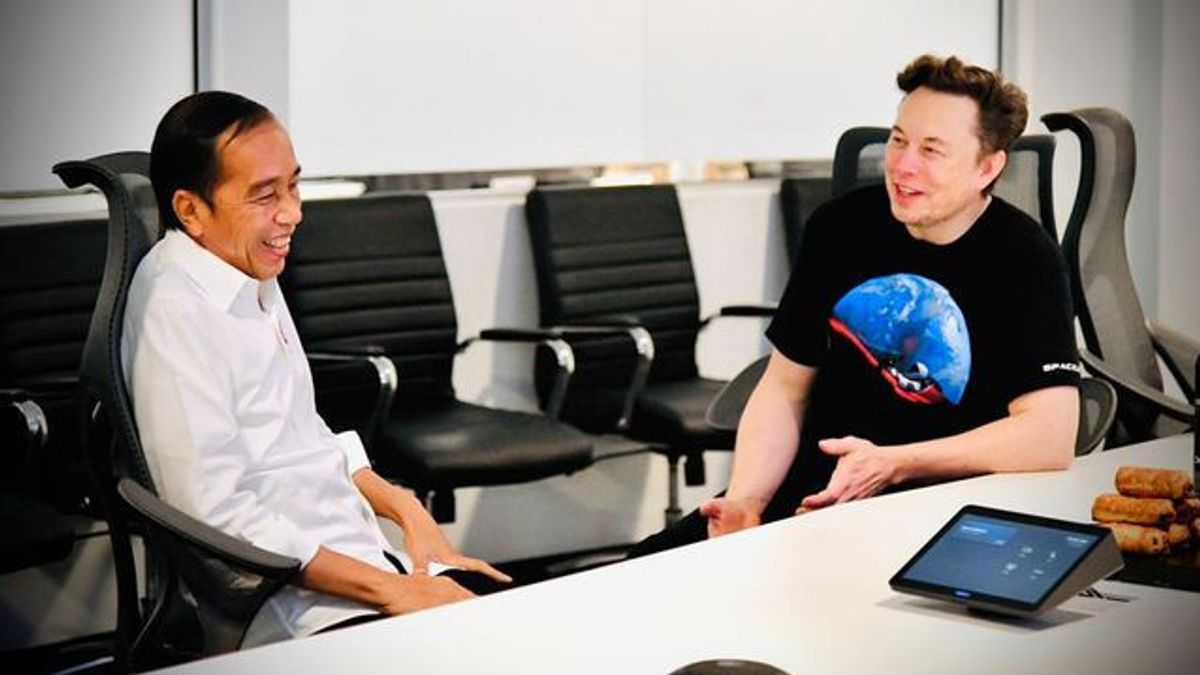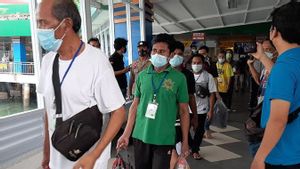JAKARTA - Tesla CEO Elon Musk invited Indonesians to also move to Mars when he met with Indonesian President Joko Widodo in Boca Chica, United States, Saturday, May 15.
The statement was made by the founder of SpaceX because Indonesia has a high population.
"Indonesia has a large population and will continue to grow. This is very good, because we need a lot of people for the future and also (moving to) Mars," Elon Musk told reporters.
However, Elon Musk said that there is no compulsion on society to move to Mars.
"As I said, Indonesia has tremendous potential in many ways. Indonesia has a large population and continues to grow," he said.
Musk stressed that anyone can take part in his big mission into space by volunteering.
The move to Mars is Musk's biggest future project, which space researchers are still studying.
"Voluntary! We think so. So it's, on a voluntary basis. You know, Mars is uninhabited, so it needs our people," he added.
For now, it is known that there have been a number of spacecraft from various countries that have successfully landed on Mars.
One of them is a spaceship from China. A Chinese drone, reported by the Xinhua news agency, successfully landed on the surface of Mars on Saturday, May 15.
The successful landing to Mars at the same time provides information to humans on Earth about the picture on the planet.
The successful landing at the same time provides information to humans on Earth about the condition of the planet's surface.
Risks to be facedRealizing the human migration from Earth to Mars is one of Elon Musk's ambitious missions. However, Musk recognizes that this move carries a high risk.
According to a report from the Daily Mail, various experts believe that sending astronauts on a Mars mission would result in further deaths.
In addition, according to SpaceX, travel outside the atmosphere has the potential for failure to lose a human life because the journey takes about six months.
This half-year space journey itself will be dangerous due to the large amount of radiation that is expected to penetrate the spacecraft during the journey.
As the European Space Agency (ESA) has highlighted, astronauts can receive radiation doses up to 700 times higher than they would experience under the protection of Earth's atmosphere and magnetic field. After one day in space, the human body receives as much radiation as one year on Earth, according to the ESA.
The English, Chinese, Japanese, Arabic, and French versions are automatically generated by the AI. So there may still be inaccuracies in translating, please always see Indonesian as our main language. (system supported by DigitalSiber.id)













